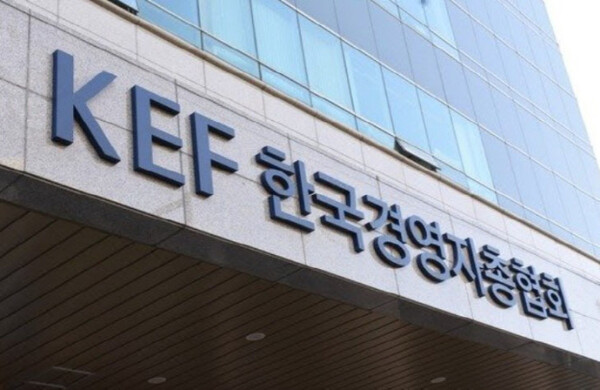Federation Suggests Re-employment and Wage Reform as Alternatives

The Korea Enterprises Federation (KEF) has publicly criticized the government’s proposed extension of the legal retirement age to 65, stating that “only regular workers at large corporations with unions will benefit.” The federation proposed post-retirement re-employment and wage system reforms as alternatives to retirement age extension.
On Nov. 11, the Korea Employers Federation released its “Business Community’s Position on Legal Retirement Age Extension,” stating that “the 65-year legal retirement age extension currently proposed by the two major labor federations is a policy solely for their union members” and “the benefits will be monopolized by regular union workers at large corporations and public institutions, who comprise only 20% of workers, while the remaining 80% of workers will inevitably be neglected.”
Lee Dong-geun, KEF executive vice chairman, explained, “Only one-fifth of all workplaces currently operate a retirement system,” adding “Even these are mostly large corporations and public sector workplaces with unions, and do not represent the positions of small business and non-regular workers at all.” In fact, the Bank of Korea recently released an analysis showing that retirement age extension has limited effects in places with low unionization rates, such as small businesses and non-regular workers.
The KEF pointed out that as more elderly workers benefit from legal retirement age extension, youth unemployment could worsen. According to the Bank of Korea, after the mandatory retirement age of 60 was implemented, for every additional elderly worker (ages 55-59), the number of young workers (ages 23-27) decreased by 0.4 to 1.5 people. The federation expressed concern, stating “(Not only the Bank of Korea but) numerous studies have confirmed that retirement age extension has a negative impact on youth employment” and “companies with higher wage seniority and larger scale experience greater youth employment reduction.”
The corporate burden from legal retirement age extension is also significant. Currently, wages for workers with over 30 years of service in Korea are three times those of workers with less than one year of service. This is the highest level among major global countries, and the cost of retirement age extension amounts to a total of 30 trillion 200 billion won. This is equivalent to the level that could employ 902,000 young people.
The KEF proposed a “Special Act on Post-Retirement Re-employment (tentative title)” as an alternative to retirement age extension. Instead of blanket retirement age extension, it argued for guaranteeing companies’ re-employment choices. Lee explained, “Some industries including Samsung Electronics, POSCO, and Hyundai Motor Co. are already introducing post-retirement re-employment” and “like Japan, we should enable work at approximately 70% of monthly salary based on retirement age.”
The KEF stated that discussions on wage system reform should also be conducted in parallel. The federation said, “Given the enormous employment burden on employers stemming from seniority-based wage systems, effective measures to reform seniority-based wage systems into wage systems based on job value and individual performance must be prepared before discussing elderly employment methods.”


